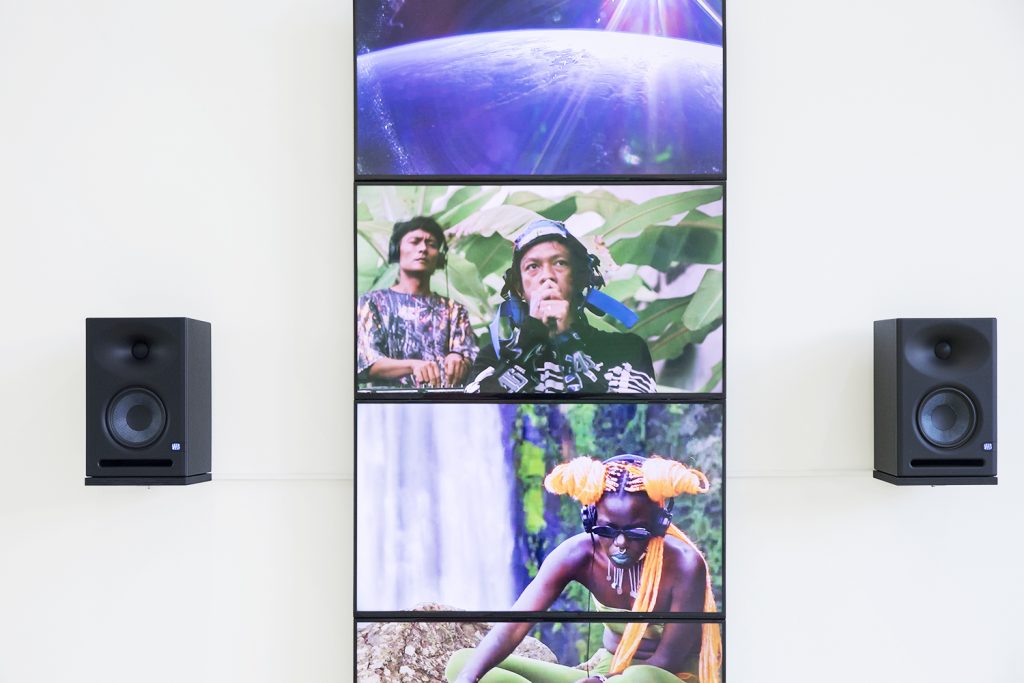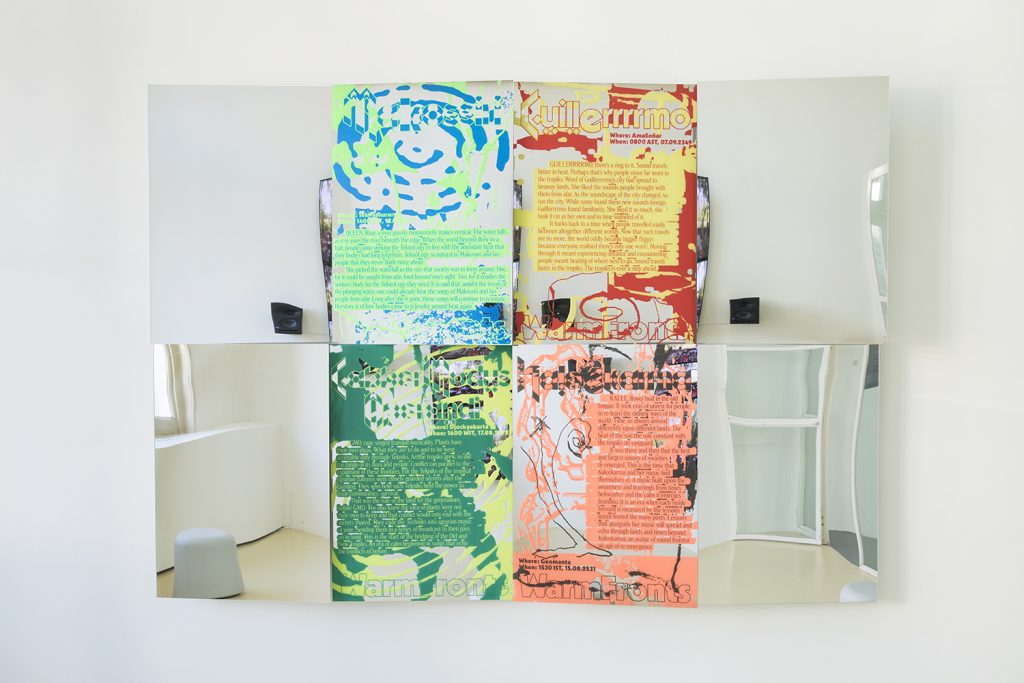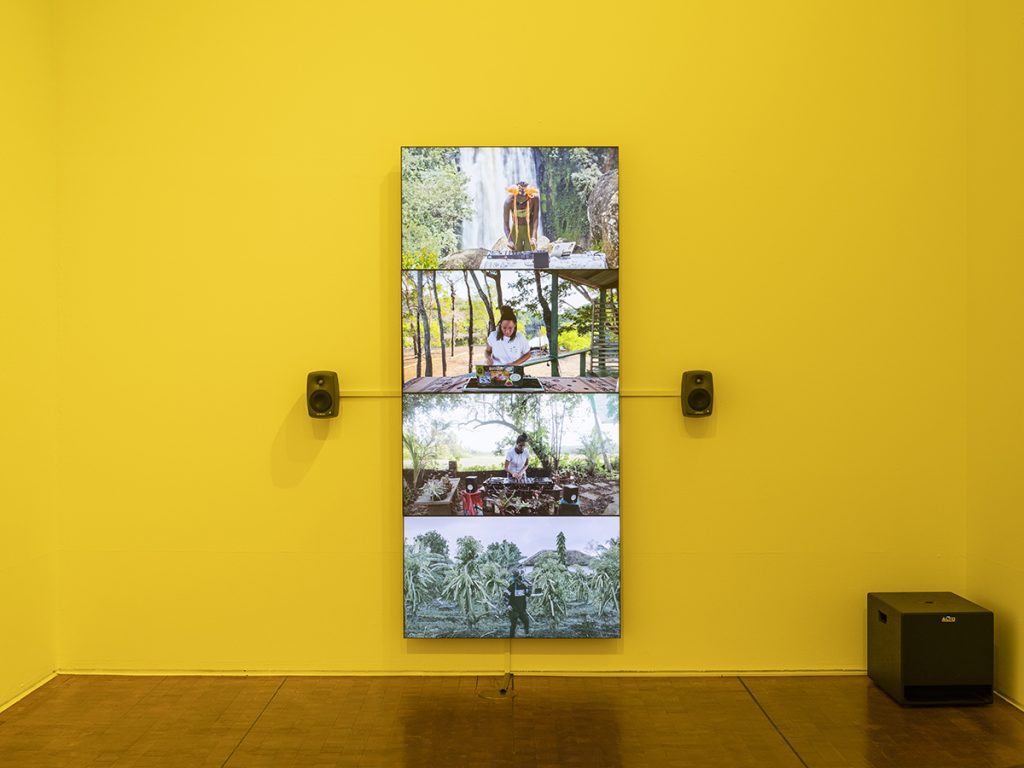Kunstinstituut Melly, Rotterdam
Curated by Rosa de Graaf (Melly) and Jo-Lene Ong (HAF)
Link to exhibition webpage
Link to Hartwig Production | Collection Grant



Technodiversity & Climate Temporalities
What if global warming leads to a future where half the world’s population resides in tropical climates? Warm Fronts is a series of transmissions from across the tropics, speculating on a radical tropical future through sound and text. Drawing from electronic music’s long-standing connection to futurism, the project began with Kent Chan inviting DJs and music producers from tropical regions—Guillerrrrmo (Brazil), Makossiri (Kenya), Kaleekarma (India), and Gabber Modus Operandi (Indonesia)—to create music sets recorded in their respective locations. These soundscapes form the foundation of Chan’s video installation, which is accompanied by a series of posters featuring microfiction by the artist, designed by Jonathan Castro Alejos.
By weaving together these sonic contributions, Warm Fronts constructs an imagined future where tropical climates become sites of connectivity and transformation. The project explores the shared histories and speculative potential of heat as both an environmental and cultural force. Chan’s work frequently engages with what he terms the “tropical imaginary,” positioning the tropics not as a space trailing behind modernity, but as a site of futurity in itself.
The work was produced with support from the Hartwig Production | Collection Grant and acceded to the Dutch state collection. Like Tontey, Chan’s work is also rooted in Yuk Hui’s critique of universalist time by resisting Eurocentric “progress” narratives and engaging with the heat of the Global South as an aesthetic and epistemic condition. For Chan, “the tropics is already future; the future is heat.”